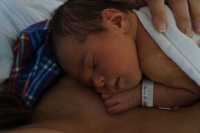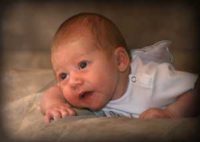MedicalResearch.com Interview with:
Fern R. Hauck, MD, MS
Spencer P. Bass, MD Twenty-First Century Professor of Family Medicine
Professor of Public Health Sciences
Director, International Family Medicine Clinic
University of Virginia Department of Family Medicine
MedicalResearch.com: What is the background for this study?
Response: Unintentional suffocation is the leading cause of injury deaths among infants under one year of age in the US. 82% of these deaths are attributed to accidental suffocation and strangulation in bed. The Sudden Unexpected Infant Death Case Registry was established by the Centers for Disease Control and Prevention (CDC) in 2009 to collect data on sudden unexpected infant deaths (SUID) to better understand trends and characteristics associated with these deaths. Data from 10 states, which account for about one-third of all US SUID cases, are captured in the Registry.
The CDC developed the Case Registry classification system in 2014 to differentiate SUID cases into several groups; explained suffocations with unsafe sleep factors is one of those categories, and the subject of this study. We analyzed infant deaths (children under one year of age) that occurred from 2011-2014 among states participating in the registry at the time of the study (Arizona, Colorado, Georgia, Louisiana, Michigan, Minnesota, New Hampshire, New Jersey, New Mexico, and Wisconsin). Among the 1812 cases in the Registry from 2011-2014, 250 (14%) were classified as suffocation. The remaining cases were classified as unexplained SUID.
(more…)



